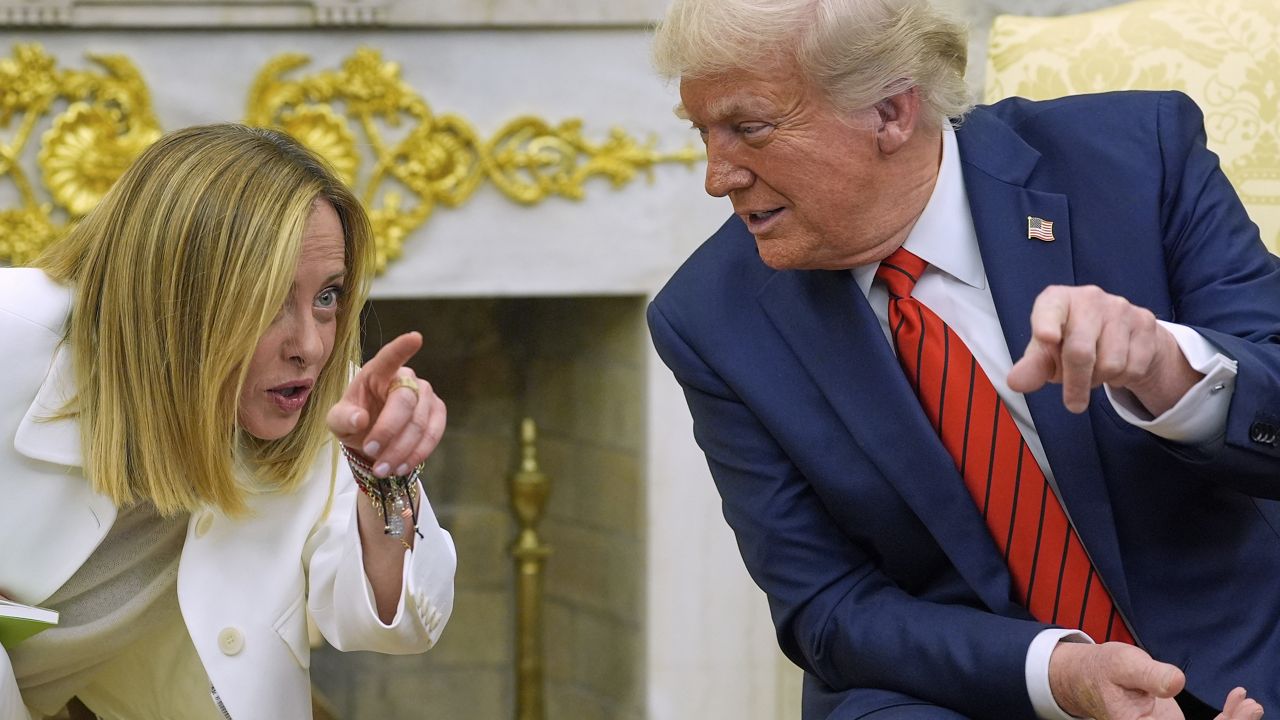The Congressional Hispanic Caucus and progressives in Congress are firing back at reports President Joe Biden is exploring executive actions he could take at the border to address the migrant crisis after Republicans killed a border deal that a bipartisan group of senators and the White House spent weeks negotiating.
“We understand how frustrating it is that Republicans in Congress continue to block any funding requested by President Biden to address the Southern Border,” Congressional Hispanic Caucus Chair Nanette Barragán, D-Calif., said in a statement on Thursday. “But it is unbelievable to hear that the White House would consider Executive Actions to prevent or restrict migrants from seeking asylum at our Southern Border and possibly use some of the same methods as former President Trump.”
Among the actions under consideration by Biden is invoking authorities outlined in Section 212(f) of the Immigration and Nationality Act, which gives a president broad leeway to block entry of certain immigrants into the United States if it would be “detrimental” to the national interest, according to the Associated Press.
Trump, the likely GOP candidate to face off against Biden this fall, repeatedly leaned on the 212(f) power while in office, including his controversial ban on travelers from Muslim-majority nations. Biden rescinded that ban on his first day in office through executive order.
“Migrants have a legal right to seek asylum when they arrive at our border,” Barragán continued in her statement. “Asylum has provided refuge for families, women, and children, and other vulnerable populations since World War II.”
Well-known progressive Rep. Alexandria Ocasio-Cortez, D-N.Y., echoed Barragán’s comparison of the actions Biden is reportedly considering taking to moves by former president Donald Trump.
“Doing Trump impressions isn’t how we beat Trump,” Ocasio-Cortez wrote in a post on X, formerly Twitter.
“Seeking asylum is a legal right of all people. In the face of authoritarian threat, we should not buckle on our principles — we should commit to them,” the New York Democrat went on to write. “The mere suggestion is outrageous and the President should refuse to sign it.”
The chair of the Congressional Progressive Caucus, Rep. Pramila Jayapal, D-Wash., called the reported actions an “extremely disappointing mistake.”
“This would be an extremely disappointing mistake. Cruel enforcement-only policies have been tried for 30 years and simply do not work,” Jayapal wrote in a post on X. “Democrats cannot continue to take pages out of Donald Trump and Stephen Miller's playbook — we need to lead with dignity and humanity.”
The power Biden is considering could be used in a variety of ways, according to the people familiar with the discussions who relayed the information to the AP. For example, the ban could kick in when border crossings hit a certain number. That echoes a provision in the Senate border deal, which would have activated expulsions of migrants if the number of illegal border crossings reached above 5,000 daily for a five-day average.
But the plans are nowhere near finalized and it’s unclear how the administration would draft any such executive actions in a way that would survive the inevitable legal challenges, the AP reported.
The exploration of such avenues by Biden’s team underscores the pressure the president faces this election year on immigration and the border. For now, the White House has been hammering congressional Republicans for refusing to act on border legislation that the GOP demanded, but the administration is also aware of the political perils that high numbers of migrants could pose for the president and is scrambling to figure out how Biden could ease the problem on his own.
Arrests for illegal crossings on the U.S. border with Mexico fell by half in January from record highs in December to the third lowest month of Biden’s presidency. But officials fear those figures could eventually rise again, particularly as the November presidential election nears.
“Many of the changes reportedly being discussed would do little to reduce the stress or number of migrants that continue to arrive at our Southern Border,” Barragán wrote. “Enforcement-only policies do not work. And using immigrant communities as a political pawn is wrong.”
The Senate dropped a border policy deal that a bipartisan group of senators and the White House spent weeks negotiating after Republicans, including former President Donald Trump, came out in opposition of the agreement.
Despite the GOP originally insisting border changes be tied to foreign aid, the upper chamber last week passed a $95 billion dollar package providing aid to Ukraine, Israel, the Indo-Pacific and more without border policy changes. The foreign assistance bill now hinges on the GOP-controlled House, where its prospects look rocky.
Since the border deal’s downfall earlier this month, Biden has rebuked Republicans for killing policy changes at the southern border and failing to pass aid to Ukraine as Russia’s invasion hits the two-year mark.
In her statement, Barragán noted that the Congressional Hispanic Caucus “has not been briefed or consulted on any Executive Actions being considered.”
Members of the caucus expressed anger and concern about originally being left out of the border talks in the Senate that led to the deal that ultimately died.








